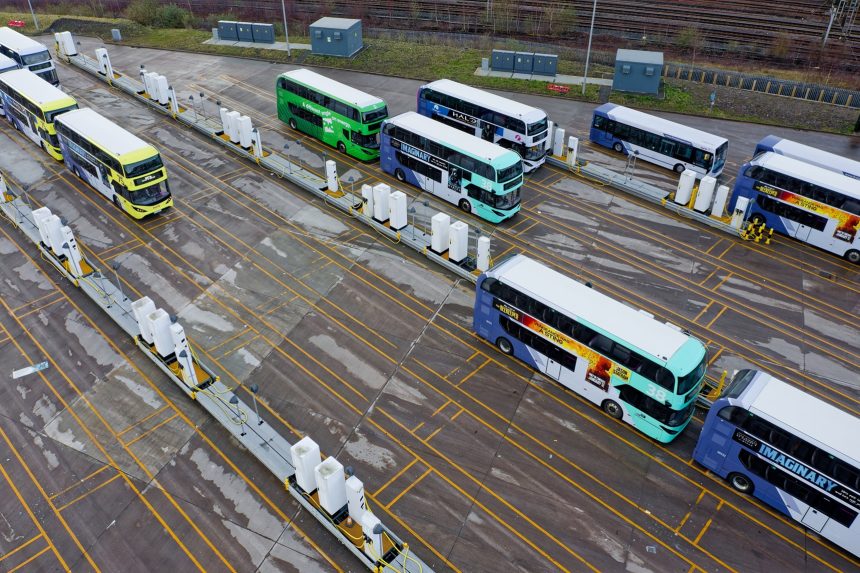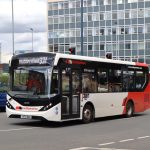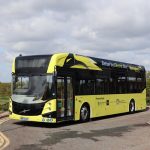Things have moved quickly in the world of bus decarbonisation. While sometimes it may not have felt like it, the speed of change in policy and the way the industry has reacted has been remarkable.
Within 10 years, operators have moved from adopting diesel-electric hybrids (and does anyone remember flywheels?) to low-carbon biomethane and now to fully zero-emission buses running on renewable energy.
Because of this very impressive adaptability and willingness to try new things, the industry has become the net-zero trailblazer for road transport. With over 60% of new bus sales in 2023 having been zero-emission, and moves now towards sharing charging infrastructure, other vehicle sectors have much to learn from their double-deck cousins.
At Zemo Partnership, we have always looked to adopt the forward-thinking approach of the bus industry, including practices taken up for testing the energy efficiency of buses for government incentive schemes such as the BSOG zero-emission bus uplift and the Zero Emission Bus Regional Areas mechanism.
These tests take place by putting a bus on a rolling road and accelerating and decelerating over the UK Bus Cycle, which is based on a real bus route that has rural, urban, and interurban sections to reflect typical operating conditions.
Tests are conducted under controlled conditions, with the final result being an average of four consecutive tests to ensure robustness. The test does not, however, include hills, reflect road conditions, or simulate a range of weather conditions that may affect the efficiency of the bus.
From these energy efficiency tests, we derive a vehicle’s well-to-wheel greenhouse gas (GHG) emissions. This consists of direct energy consumption (from the ‘wheel’) and upstream emissions associated with energy generation (from the ‘well’).
This well-to-wheel assessment takes into account the wider impact of a zero-emission vehicle rather than looking solely at emissions from the tailpipe. Battery-electric vehicles have no tailpipe emissions and so are good for local air quality. But only through the mass adoption of renewable energy into our electricity grid are they better for reducing overall GHG emissions.
You may also recognise these emissions as Scope 1 (direct) and Scope 2 (indirect), which companies are required to report on an annual basis. Adopting zero-emission vehicles and procuring renewable energy cuts both Scope 1 and Scope 2 emissions significantly.
A growing concern for companies is reducing their Scope 3 emissions. That encompasses all the associated emissions from their activities, such as purchased goods, waste disposal, and leased assets.
For bus operators, that will include the emissions associated with the production and disposal of buses. This is where life cycle analysis (LCA) comes in. LCA can be very complex, but without it, policymakers could miss out on identifying significant impacts, such as emissions from battery production.
At Zemo, we are now looking to develop our bus certification process to include LCA. We are consulting with our Bus Working Group across 2024/25 to identify what would benefit members the most. Once again, the bus industry will be leading transport sector innovation in terms of net-zero practices as we strive, together, for the UK to meet its 2050 ambitions.



























